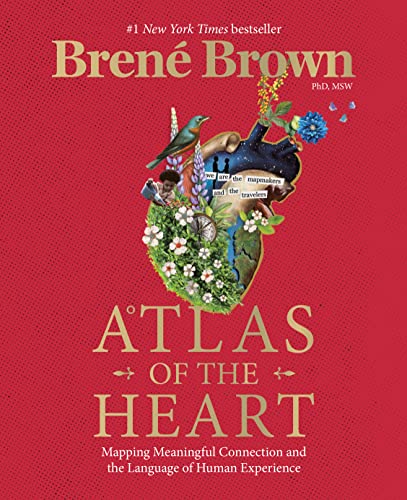Atlas of the Heart: Mapping Meaningful Connection and the Language of Human Experience
Brené Brownamazon.com
Saved by Irene Forti and
Atlas of the Heart: Mapping Meaningful Connection and the Language of Human Experience

Saved by Irene Forti and
I understood that people would do almost anything to not feel pain, including causing pain and abusing power, and I understood that there were very few people who could handle being held accountable for causing hurt without rationalizing, blaming, or shutting down.
Heart is sea, language is shore. Whatever sea includes, will hit the shore. — RUMI
Discouraged: I’m losing my confidence and enthusiasm about any future effort—I’m losing the motivation and confidence to persist.
Regretful: It didn’t work out how I wanted, and the outcome was caused by my decisions, actions, or failure to act.
this line about schadenfreude: It’s “an emotion typically born out of inferiority rather than superiority.”
So often, when we feel lost, adrift in our lives, our first instinct is to look out into the distance to find the nearest shore. But that shore, that solid ground, is within us. The anchor we are searching for is connection, and it is internal.
Kirk told me, “Maps are the most important documents in human history. They give us tools to store and exchange knowledge about space and place.”
Vulnerability is not weakness; it’s our greatest measure of courage.
Here is my definition of comparison: Comparison is the crush of conformity from one side and competition from the other—it’s trying to simultaneously fit in and stand out.
We try to model the questions: What expectations do you have going into this? What do you want to happen? Why? What will that mean to you? Do you have a movie in your head? And in this perception-driven world, the big question is always: Are you setting goals and expectations that are completely outside of your control?